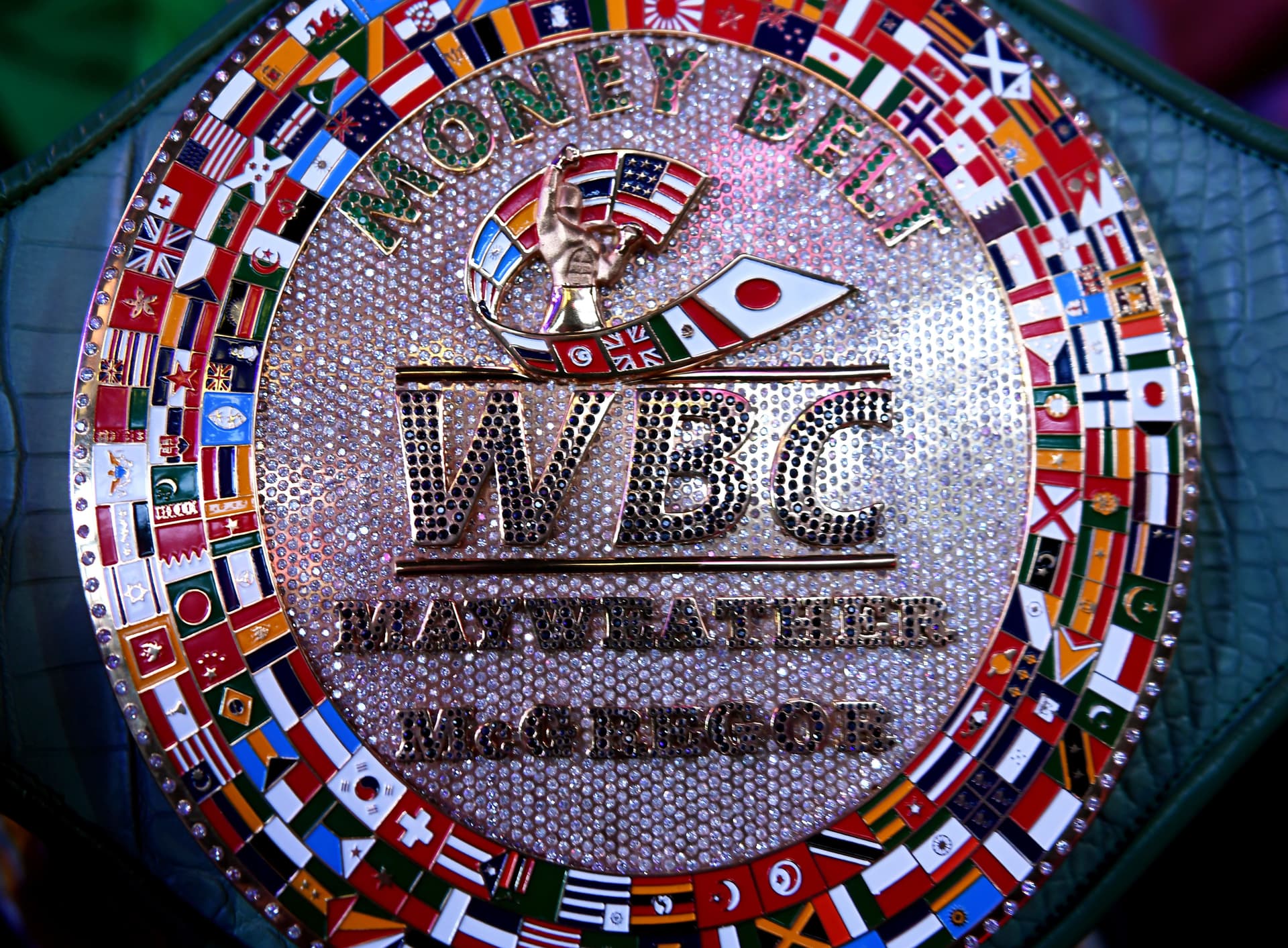Boxing
What is PED in boxing?
PEDs are often mentioned in the sport of boxing, but what does it stand for?

Image Credits: Stephen McCarthy/Sportsfile via Getty Images
PEDs are often linked to the sport of boxing, but what are they?
Boxing is a dangerous sport that’s shrouded in controversy, made even more risky and disreputable by the illegal use of PEDs, but what exactly are they and why are they used?
Performance Enhancing Drugs are illegal substances not permitted in boxing, but are used to gain an unnatural and unfair advantage in athletic performance, whether it’s in strength, speed or stamina.
It’s not only a problem that’s found in boxing, but in every sport around the world. In cycling, American hero Lance Armstrong admitted to cheating for most of his career and was therefore stripped of his seven Tour de France titles and forced to hand back his Olympic bronze medal from the Sydney 2000 Summer Games.
Other sports have had highly publicised cases too, such as when Diego Maradona was found with multiple types of Ephedrine in his system after the 1994 World Cup, which is a drug that reduces fatigue and increases energy and reactions.
There was even a well-publicised case of an Olympic skier, Max Hauke, caught giving himself a blood transfusion during competition. He was arrested and found guilty of blood doping.
The difference with cheating in boxing compared to other sports is that it’s a case of life and death. Boxing is dangerous enough already. Every fighter that steps through those ropes are putting their life on the line, so if one boxer has an added advantage over another, it could cause serious injury or even death.
A cyclist, footballer or skier giving themselves an added edge won’t result in any physical harm to another person, but cheating in boxing could result in very harmful consequences.
Another big difference is that no fighter would ever admit to taking performance enhancing drugs. Lance Armstrong admitted to his offences live on Oprah Winfrey’s show to millions of Americans, but there’s yet to be a professional boxer that ever holds up their hands.
Instead, every boxer vehemently denies doping, protesting their innocence before, during and after. Some of the most notable examples of failed drug tests in boxing and their ensuing excuses can be found below:
Conor Benn – Eggs
The sons of Nigel Benn and Chris Eubank Sr. were set to reignite one of boxing’s most famed and fiercest rivalries in 2022, but for Conor failing multiple drug tests that caused their clash to be cancelled.
What made the news even bigger was how promoter Eddie Hearn and everyone involved were aware of the multiple positive tests yet continued full steam ahead with the event anyway, until the British Boxing Board of Control had to intervene on fight week and force the fight to be called off.
This was a bizarre case because Conor Benn tested positive for Clomiphene many months and multiple times prior to his proposed punch-up with Chris Eubank Jr. but the fight was only scrapped a couple of days before, and this caused such a reaction from the sporting world, with every person choosing to voice their opinions on it, and the likes of UKAD, VADA, the WBC, the BBBofC all getting involved in the inquiry process.
Conor even went on national TV to protest his innocence and blamed the adverse findings on excessive consumption of eggs, and after many months and extensive investigations, he was later cleared, but his relationship with the BBBofC, by this time, had fallen beyond repair and he hasn’t held a licence with them for almost two years now, opting to fight abroad instead.
Ryan Garcia – Ostarine
Ryan Garcia is one of modern boxing’s most famous, colourful characters, known for his huge social media following and bizarre behaviour.
‘KingRy’ recently tested positive for the banned substance Ostarine twice, on the day before and the day of the fight on April 20, 2024 with long-time rival Devin Haney. The pair had fought six times in the amateurs and was scored at 3-3, so their WBC World super-lightweight was set to be the decider.
A huge underdog, due to his erratic behaviour leading all the way up to the fight, talking nonsense on social media and even downing a bottle of beer on the scales, of which he came in well over the weight limit and forced to pay a fine, he actually pulled off an incredible performance to drop the champion twice on his way to winning on points.
However, upon the adverse findings he was later handed a one-year ban by the New York State Athletic Commission and his career-best victory over Haney was reversed to a ‘No Contest’.
Jarrell Miller - Cocktails
Undefeated American Jarrell Miller is a heavyweight who weighs over 300lbs. He failed a drugs test ahead of his proposed world title showdown with Anthony Joshua, scandalously found with multiple banned substances in his system, immediately calling into question the legitimacy of his perfect 23-0, 20KO professional boxing record.
Promoter Eddie Hearn even described the results as a cocktail of banned substances, angrily venting, “It makes me sick! Sick that someone would go to those lengths in a fight. People have died in the ring, you know? He had to try and cheat the system.”
He furiously denied taking steroids for performance enhancing purposes, but he did admit this: “Did I take something for healing properties, for injuries? Yes, I have. But to win a fight and during a training camp? No, I have never done that.”
He was later caught a second time and given another ban.
Canelo – Mexican Meat
Mexican megastar Saul Canelo Alvarez has dominated the sport of boxing for the past decade, but not without his fair share of accusations.
The four-weight world champion has been able to rise from 139lbs on his pro debut all the way up to 175lbs – that’s over six different weight divisions! Manny Pacquiao’s success over eight weight divisions has called his integrity into question too.
Canelo was once found with traces of Clenbuterol in his system, which he blamed on tainted Mexican beef. The banned drug improves endurance and stamina, whilst reducing weight quickly.
The excuse can be backed up, as Clenbuterol is given to cows in Mexico to increase lean muscle mass and reduce body fat. Other Mexican boxers, such as Erik Morales and Francisco Vargas, have tested positive in the past and claimed the same reasons.
Canelo hasn’t ever received any boxing bans, despite some opponents believing him to be a drug cheat.
In the UK, Tyson Fury was subjected to an extremely similar case, where he blamed an adverse finding on consuming wild boars, which is plausible as man coming from a travelling background.
Lucien Bute – Good Night, Sleep Tight
Former super-middleweight world champion Lucien Bute took supplements to help him sleep and unfortunately for him it unknowingly contained the illegal substance, Ostarine.
He tested positive on both the A and B samples after drawing with Badou Jack in their 2016 fight.
He threatened to take legal action against the producers of the supplement because it was not listed in the ingredients and his physiotherapist specifically ordered the product because he thoroughly checked it didn’t contain any banned substances.
Example of PEDS
The below examples are some of the most common banned substances and their side effects:
Example of PEDS
| Substance | Effects |
| Stanozol | Increase in muscle mass, quicker recovery times |
| Dromostanolone | Enhances muscle hardness and density |
| Boldenone | Increase in muscle mass and no water retention |
| Erythropoietin | Increased endurance and aerobic capacity |
| Clomifene | Elevates testosterone levels to increase muscle mass and strength |
| Ostarine | Enhances muscle mass and strength, reduces fatigue |
| Nandrolone | Enhances muscle mass and strength |
| Clenbuterol | Increases muscle mass, burns fat quickly |
| Chlorothiazide | Cuts weight, improves performance |
| Testosterone | Increase in muscle mass, quicker recovery times |
Not an Exact Science
If the above has taught us anything, then it’s how PEDs in boxing are rife, yet the testing process is often unreliable and unsuccessful.
Boxers have consistently been caught ingesting illegal substances, yet able to blame adverse findings on food to avoid any further action that could lead to suspensions and fines.
Some boxers are caught and cleared, some found guilty and banned, but it’s a real 50-50 mix.

Tim has over 27 years experience within the sports industry, working for football clubs Arsenal FC and Millwall FC, and boxing news websites British Boxing News, Boxing Social and Global Boxing News. His boxing articles have been published in Boxing News Magazine, national newspapers, plus many other major news outlets.